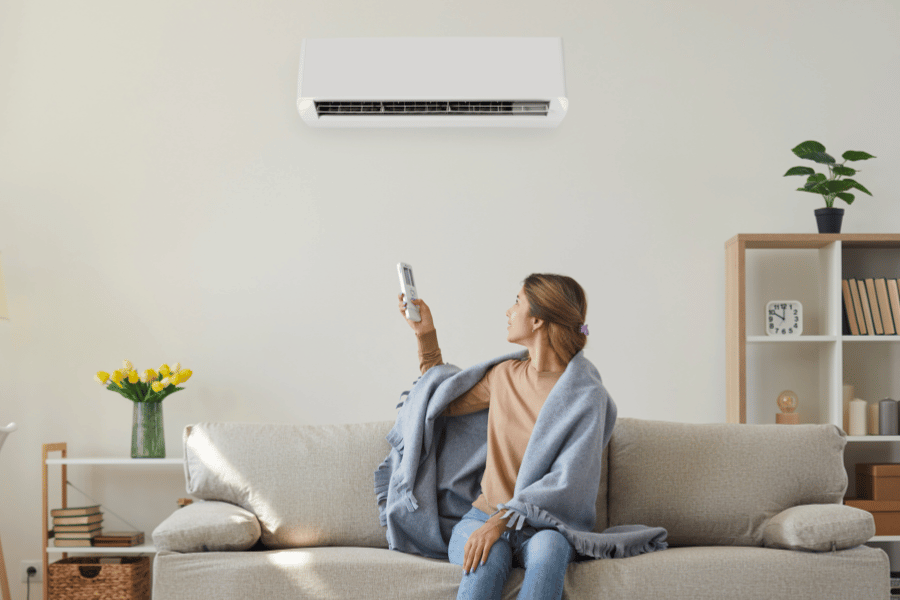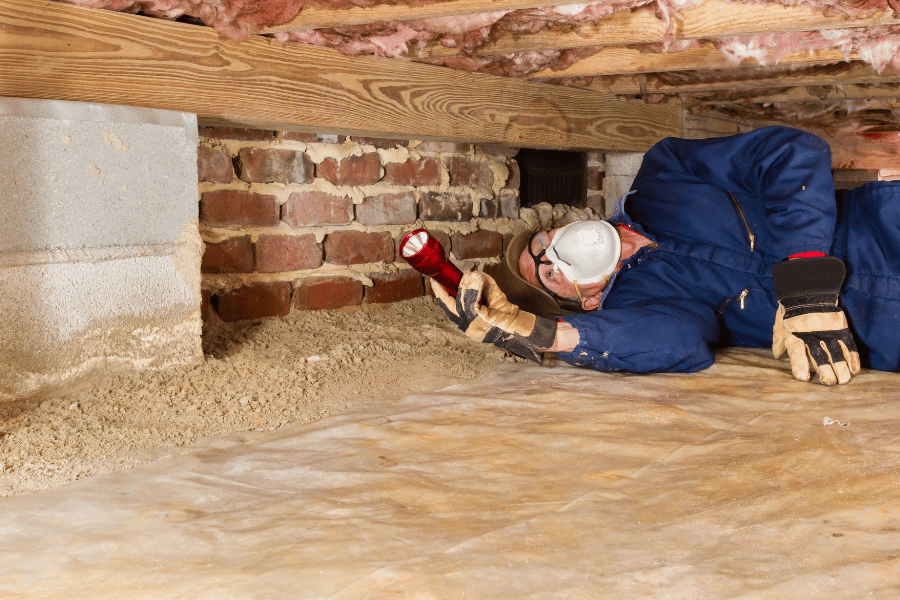DIY Home Projects: 7 Tips for Changing HVAC Filters
January 15th, 2024
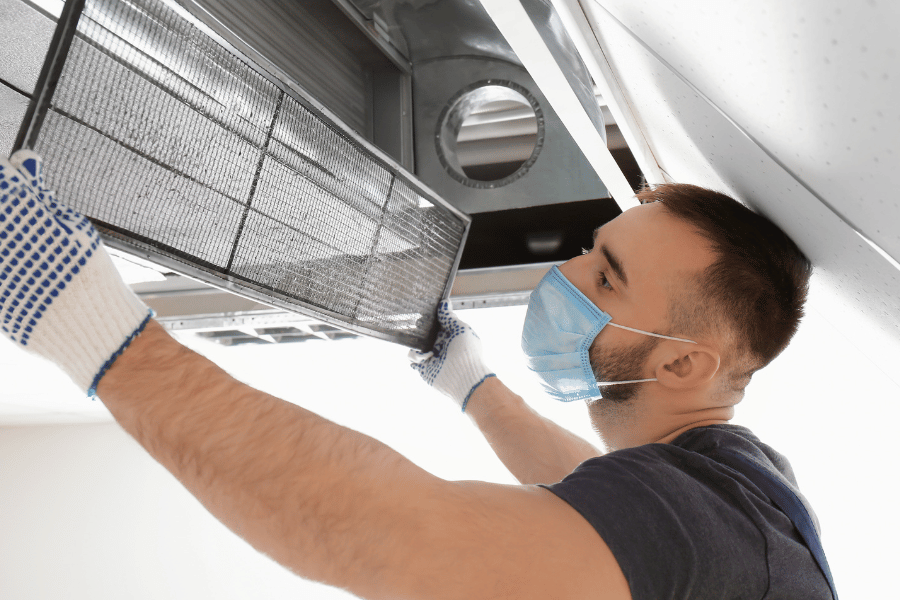
DIY Home Projects: Changing HVAC Filters
Does your HVAC filter need to be replaced? Here is how to replace and change your HVAC filter quickly and easily.
Part of being a homeowner comes with many regular home maintenance. There are many tasks that many others overlook and wait til the last minute, which can cause more issues and more fixing. Changing your HVAC filter on your own is very simple and inexpensive.
Furnace filters are a vital part of your heating and cooling systems. Standing 1-inch filters, when changed regularly, will keep your HVAC system running efficiently. Cleaning these filters will only help extend the lifespan, lower energy costs, cleaner air, and many other pros.
If you are looking to keep your home in the best shape and do not want to make any mistakes that lead to problems and expenses, then knowing how to change your HVAC filters simply is something everyone who has a home should know. Taking care of this task at least every three months can make a huge difference in comfort and repairs.
For your HVAC system to run correctly, you need to clean the filters or change them on a regular monthly basis, especially during peak seasons. Here is how to change your HVAC system on your own and some tips and tricks on doing so so you do not miss any critical steps.
Here is how to change your HVAC filters.
Chapters
1. What is HVAC?
HVAC stands for heating, ventilation, and air conditioning. HVAC systems heat and cool the whole house and work with many other equipment throughout the house, such as furnaces, air conditioners, thermostats, and ductwork.
Most HVAC maintenance you need to do as a homeowner is proactive and preventive because a lot can go wrong with your system that can cause damage, loss of money, and issues with the air. Knowing your HVAC system and all the little tips and tricks around it can be very beneficial in the long run.
The systems work by moving the air between outside and inside to keep the house warm or cool depending on the season as well as your personal preferences. HVAC systems may also filter and clean the air inside, maintain humidity levels, conserve energy, and do other things.
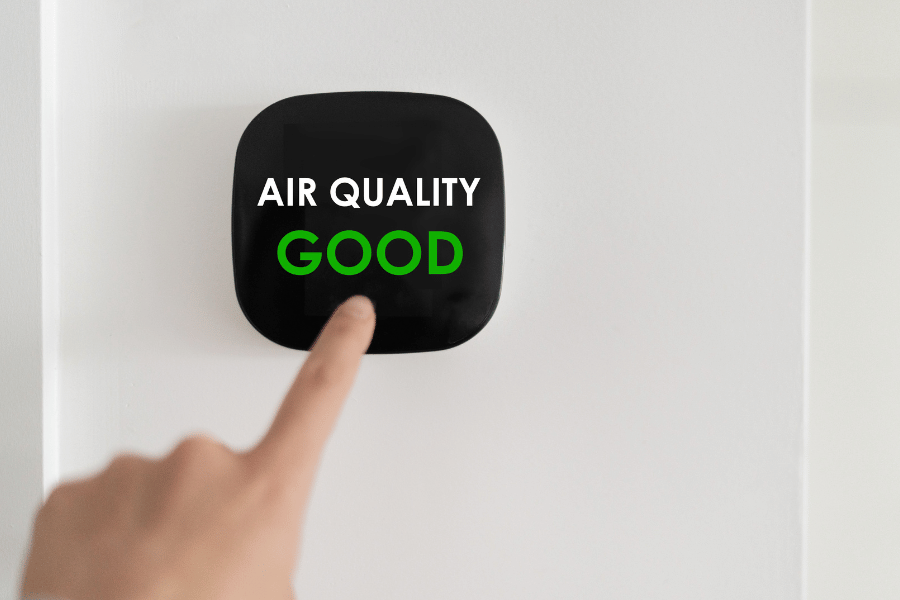
2. Air Filter Maintenance
Air filter maintenance is important because it will extend the life of your furnace, reduce energy bills, and improve the air quality. Changing the filter on a regular basis is important to make the system run efficiently and correctly. If you are looking to replace the outside AC filter unit, you will need to find the location, which can be the hardest part.
Here is a step-by-step guide on air filter maintenance.
- Find the air filter location. Many homes may have multiple that require cleaning or replacement.
- Get the correct size. Many filters have different sizes, so make sure you do not waste money without measuring or finding out the correct size.
- Place the filter correctly. Many filters have arrows indicating what direction to go, so make sure you do it right because if not, it will work harder to pull air through.
3. Step-by-Step Explanation
Before you jump into the easy and fast process of changing your HVAC filter, it is essential that you get the correct type and size of the filter because it will make a huge difference. You can not tell what type you have; take note of the brand and model number located on the panel and ask for help from your local hardware store.
Here is how to change the HVAC filter easily:
- Turn off the HVAC system fully
- Remove the access panels to get into the filter
- Remove the old HVAC filter
- Insert the new HVAC filter with the correct type and size
- Ensure it is installed in the right way
- Close the access pales and turn the unit back on
Here are some tips on changing the filter:
- Make sure you turn off the unit
- Use the right filter
- Follow directions properly
- Make sure there are no gaps around the filter frame
- Use a rag to clean up dust before you replace it
- Replace any levers, gaskets, or seals before
- Turn the unit on and make sure it is staying in place
Whether you are changing the air filter in the air handler cabinet, return air duct, or window AC unit, the same steps are for all. Some of the covers and panels may differ, but overall, the same steps should be taken to clean or replace each filter correctly.
While changing the filter is needed, you will also want to look into professional HVAC maintenance even if you are regularly changing and cleaning git out. Having an inspection about twice a year to limit seasonal issues is essential.
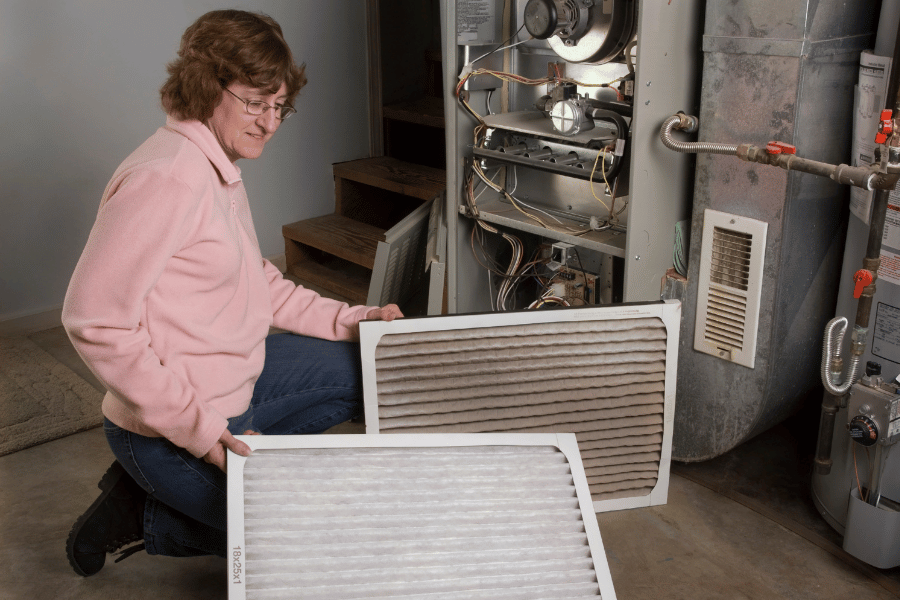
4. Common HVAC Problems
Corrosion
When wiring and moisture come together, you will always have the potential for corrosion. Any wines or terminals related to the HVAC system can lead to corrosion and will generally cause the heating or cooling system to turn on and off on its own. It will also make the system work harder and lead to a break of the entire system over time.
Dirt and Debris
Any part of the HVAC system, filters, electrical panel, and anything part of it can build up debris over time. The system needs to be cleaned regularly and be free of debris. Debris will cause the system to work inefficiently, and any dirty filters will just pump dust and allergens into the home, reducing air quality and damaging the system by clogging it. Take the necessary steps to clean out the plan regularly to prevent this.
Leaks
Every HVAC connector and drain line can develop leaks, forcing your system to run harder than it should and making you have to replace one or more components at once. Ensuring you check for no leaks from the refrigerant lines and other lines is vital so nothing gets damaged.
5. Maintaining an HVAC System
Regular HVAC system maintenance is crucial to avoid expensive damages and inconvenient complications. Homeowners should follow some everyday tips to keep their HVAC systems in excellent condition throughout the year.
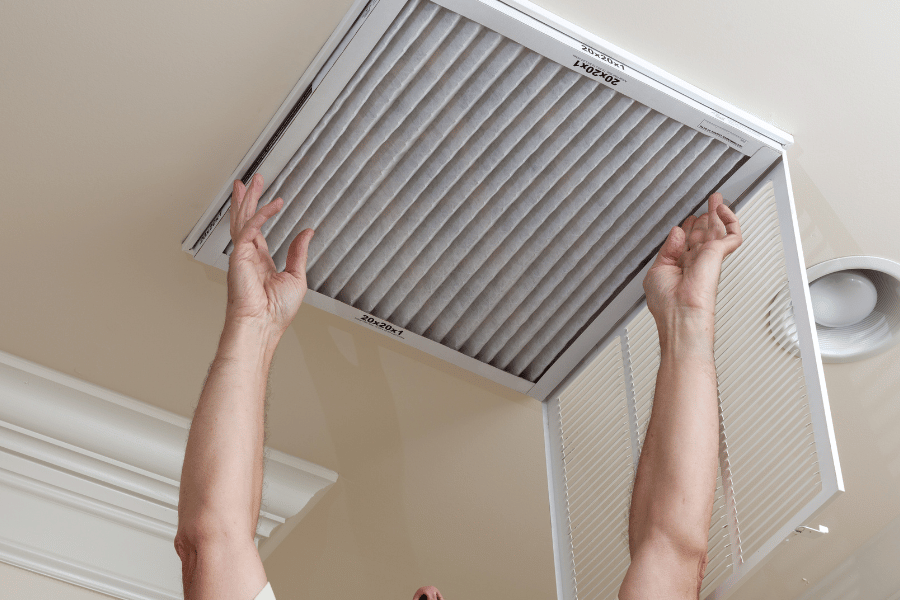
- Change the air filter
- Doing this every three months is recommended to keep the system running smoothly and improve air quality.
- Clean the outdoor condensing unit
- At the start of every season, remove any debris from the unit and spray down the outside to clean off any grime or dirt that has been building up.
- Clean the outdoor unit
- Clear out any plants or dirt that have been building up in the way to eliminate interference. Make sure the bushes and trees around are at least two feet on all sides.
- Check the air conditioner drain line
- Make sure to clear out any blockage that has been building up in the drain line to prevent breakdowns or any interior leaks.
- Get regular maintenance
- Bring out an HVAC technician at least once a year to check out the system and perform inspections to extend the lifespan of the system life.
6. Signs You Need Replacement
Knowing the signs that you need to place your HVAC system is important. The purpose of regular maintenance is to keep the system running at the top quality it can, and if you do an excellent job at doing so, it should last a long time. However, it is normal to need to repair some parts over time.
Things happen, and not everything is perfect, so knowing when you need a repair or replacement is essential. Here are some common signs that you need a technician to come out to take a look if you do not know how to fix them on your own.
- The system turns itself off and on intermittently
- System is only blowing warm air out
- You notice an imbalance in the air temperature around the home
- System is making odd noises or operating at a louder volume than usual
- Poor airflow
- Energy bills are going up unexpectedly
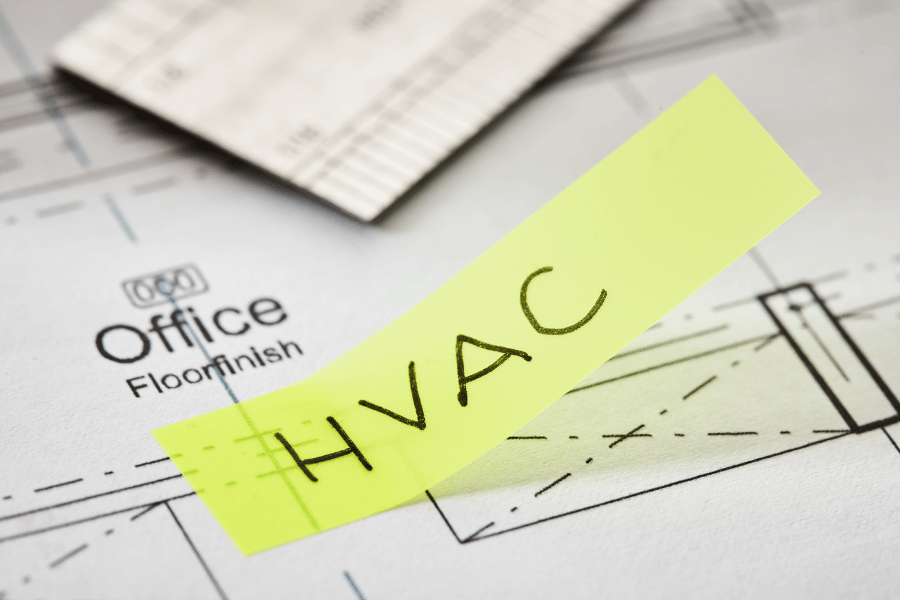
7. Types of HVAC Systems
There are several standard types of HVAC systems to choose from, including central air conditioning, heat pumps, and ductless mini-split systems. Here are some types of HVAC systems in homes.
- Standard Split System:
- This system has two parts of it; one is outside the house while the other one is inside the home. These systems offer many different options to choose from and are primarily affordable compared to others. They can be split in a combination of different ways.
- Furnace and Air Conditioner:
- The system's furnace portion is usually inside the home, while the air conditioner is installed outside. A furnace burns. Fuel is distributed through the house while they are out of the house and transferred to the outside.
- Heat Pump Split System:
- Common for mild climates that do not reach freezing. This system includes a condenser or compressor that is installed outside, and the air handler is in the inside of the home. During the heating season, a heat pump moves heat from outdoors inside the home, and during the cooling season, it removes it from the home
- Furnace and Heat Pump:
- This hybrid system contains a split system with two heat sources. This is usually used in colder climates where the heat pump operates during moderate weather and switches to the furnace when temperatures drop.
- Ductless Split System:
- This system can be used in buildings that do not have ductwork. In the most basic form, these systems include one outdoor and one indoor unit that is connected through refrigerant tubing and electrical wiring.
- Packaged System:
- Installed all outside with some components in one unit and some connected to the ductwork through a hole in the outside wall. These types can include gas, heat pumps, and hybrid.
- Geothermal HVAC System:
- This is a heating and cooling system that operates much differently than a traditional furnace. A geothermal heat pump exchanges heat between the ground or water source and the air to heat the home. The cooling process is very similar to an air conditioner; however, it uses the ground as its heat sink. These systems offer excellent energy efficiency but tend to be more expensive.
FAQS
What is routine maitnance for HVAC?
Routine maintenance for HVAC will include thoroughly cleaning all elements and drains and inspecting connections, operations, and functionality to ensure the system is working at its full performance and no repairs or replacements are needed.
How often should HVAC be serviced?
Your HVAC, no matter what type or kind you have, should be inspected, cleaned, and serviced at least once a year. It is also best to check the heating in the fall before winter comes along and in the spring for summer.
What happens if you do not change the HVAC filter?
Failing to change the HVAC filter will only mean that debris and dirt will soon clog up the unit, causing it to overwork, which then leads to higher energy bills and less time for it to work. It will not last as long as it should.
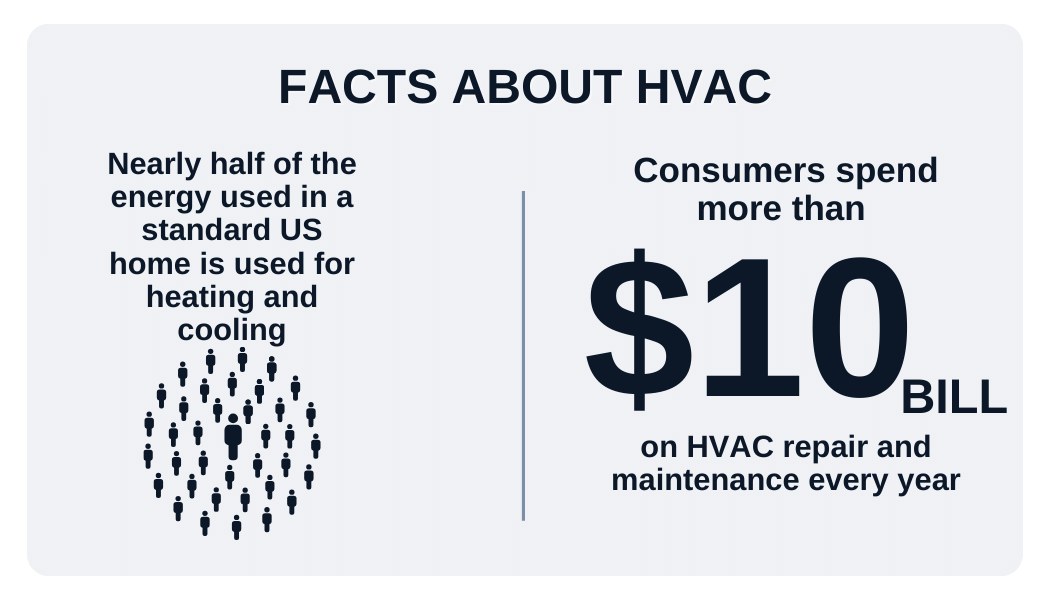
DIY Home Projects: Changing HVAC Filters
Owning a home can be overwhelming, especially if it's your first time. However, it doesn't have to be. Understanding your responsibilities and some simple things can make a huge difference in your bills and overall quality of life.
Home heating and cooling systems account for over half of total household energy consumption and can cost you thousands of dollars to replace. Therefore, keeping your HVAC system in good condition is essential to save money in many ways.
When you own a home, there are many things to consider and take care of. Your home has various systems that need to function efficiently and effectively, such as the HVAC system. Although it may seem like it's not your problem, it's essential to know about it.
If you are considering moving, contact us or visit our website. Our team at Raleigh Realty is here to help you with any home buying or selling needs.

Ryan Fitzgerald
Hi there! Nice to 'meet' you and thanks for visiting our Raleigh Real Estate Blog! My name is Ryan Fitzgerald, and I'm a REALTOR® in Raleigh-Durham, NC, the owner of Raleigh Realty. I work alongside some of the best Realtors in Raleigh. You can find more of my real estate content on Forbes, Wall Street Journal, U.S. News and more. Realtor Magazine named me a top 30 under 30 Realtor in the country (it was a long time ago haha). Any way, that's enough about me. I'd love to learn more about you if you'd like to connect with me on Facebook and Instagram or connect with our team at Raleigh Realty. Looking forward to connecting!
Related Blogs
